Diabetes insipidus di is defined as the passage of large volumes 3 l24 hr of dilute urine 300 mosmkg. Despite the similar names the only things these two have in common is that they make you thirsty and make you pee a lot.
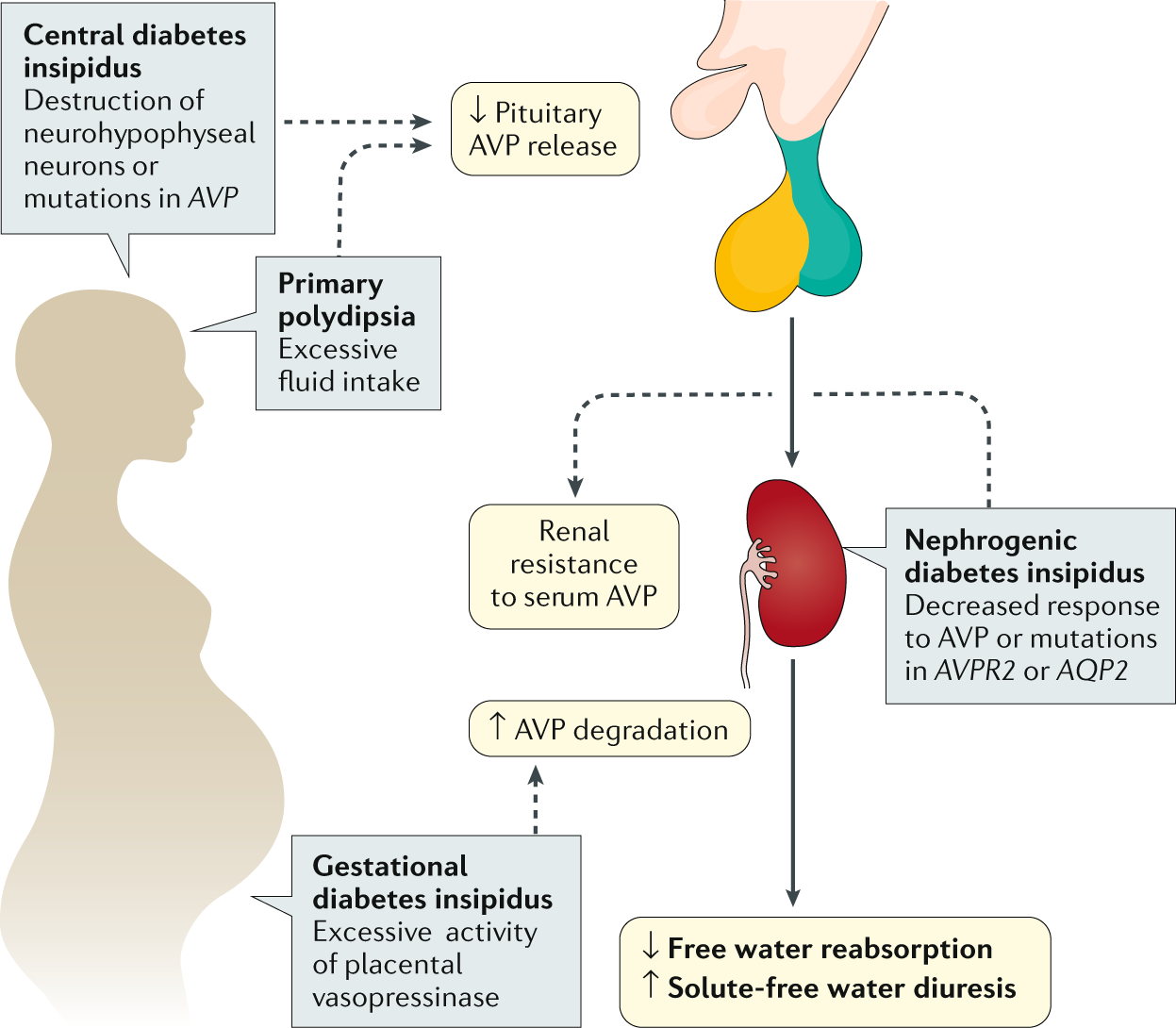 Diabetes Insipidus Nature Reviews Disease Primers
Diabetes Insipidus Nature Reviews Disease Primers
expected findings of diabetes insipidus is important information accompanied by photo and HD pictures sourced from all websites in the world. Download this image for free in High-Definition resolution the choice "download button" below. If you do not find the exact resolution you are looking for, then go for a native or higher resolution.
Don't forget to bookmark expected findings of diabetes insipidus using Ctrl + D (PC) or Command + D (macos). If you are using mobile phone, you could also use menu drawer from browser. Whether it's Windows, Mac, iOs or Android, you will be able to download the images using download button.
Diabetes insipidus di is a condition caused by hyposecretion of or insensitivity to the effects of antidiuretic hormone adh also known as arginine vasopressin avp.

Expected findings of diabetes insipidus. The only symptoms in primary central diabetes insipidus are polydipsia and polyuria. Only a laboratory testing is able to confirm the presence of diabetes insipidus. Diabetes insipidus di is a condition in which the kidneys are unable to concentrate urine.
Plasma or urinary adh evalutation may be performed after fluid restriction or hypertonic saline infusion to determine whether diabetes insipidus originated from damage to the posterior pituitary gland neurogenic or failure of the kidneys to response to adh nephrogenic. Central neurogenic pituitary or neurohypophyseal di characterized by decreased secretion of antidiuretic hormone adh. Diabetes insipidus is a rare disorder that occurs when a persons kidneys pass an abnormally large volume of urine that is insipiddilute and odorless.
Central di the most common form of diabetes insipidus is caused diabetes insipidus knowledge for medical students and physicians. Also referred to as arginine vasopressin avp nephrogenic di. It also leads you to produce large amounts of urine.
In most people the kidneys pass about 1 to 2 quarts of urine a day. Diabetes insipidus die uh bee teze in sip uh dus is an uncommon disorder that causes an imbalance of fluids in the body. Onset of central diabetes insipidus may be insidious or abrupt occurring at any age.
These tests in some form have been available in the united states since the 1930s. Diabetes insipidus is a different disease than diabetes mellitus. In people with diabetes insipidus the kidneys can pass 3 to 20 quarts of.
While the terms diabetes insipidus and diabetes mellitus sound similar theyre not related. In secondary central diabetes insipidus symptoms and signs of the associated lesions are also present. Start studying ati med surg book review diabetes insipidus.
It has the following 2 major forms. If the clinical presentation of this condition is suggested by the signs and symptoms being suffered then a medical provider will order a 24 hour urine collection. Learn vocabulary terms and more with flashcards games and other study tools.
Adh is synthesised in the hypothalamus and transported as neurosecretory vesicles to the posterior pituitary. This imbalance makes you very thirsty even if youve had something to drink. If you have diabetes insipidus the hormones that help your body balance liquids dont work.
 Pdf Diabetes Insipidus Diagnosis And Treatment Of A
Pdf Diabetes Insipidus Diagnosis And Treatment Of A
 Complications Of Diabetes Insipidus Diabetesinsipidus Org
Complications Of Diabetes Insipidus Diabetesinsipidus Org
 Diabetes Insipidus Vs Siadh Bing Images Diabetes
Diabetes Insipidus Vs Siadh Bing Images Diabetes
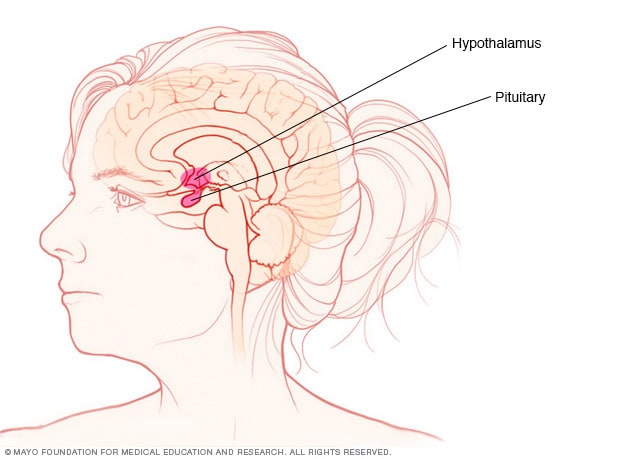 Diabetes Insipidus Symptoms And Causes Mayo Clinic
Diabetes Insipidus Symptoms And Causes Mayo Clinic
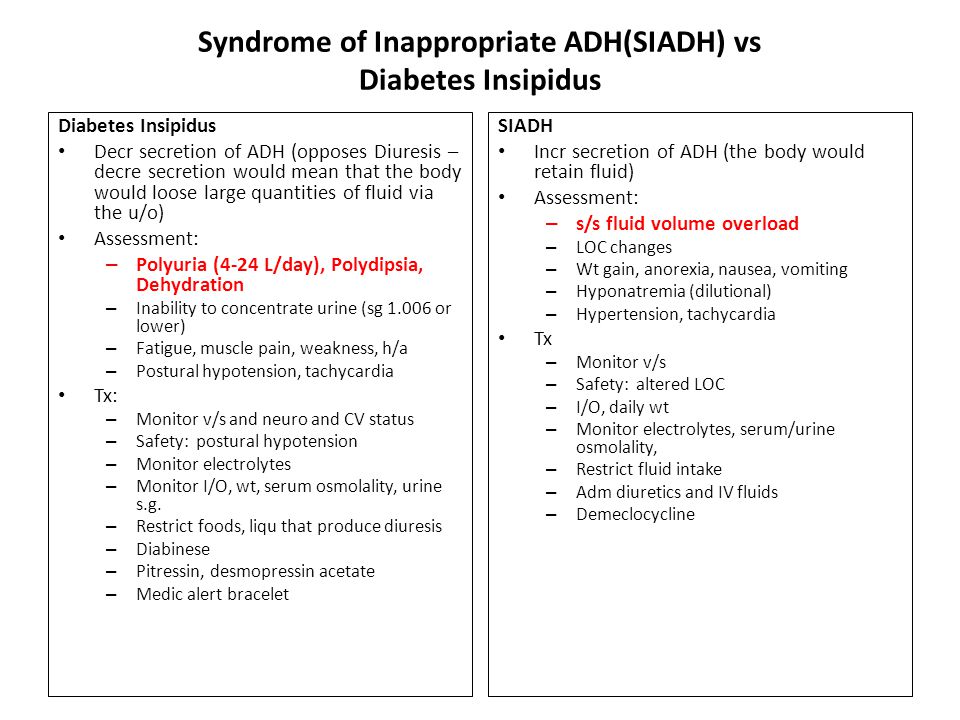 Developed By Dare Domico Rn Dsn Revised By Jill Ray Ppt
Developed By Dare Domico Rn Dsn Revised By Jill Ray Ppt
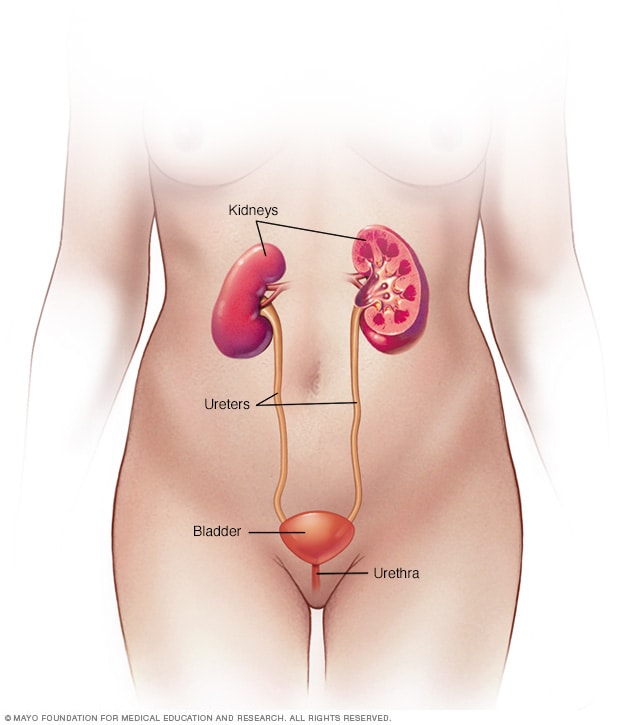 Diabetes Insipidus Symptoms And Causes Mayo Clinic
Diabetes Insipidus Symptoms And Causes Mayo Clinic
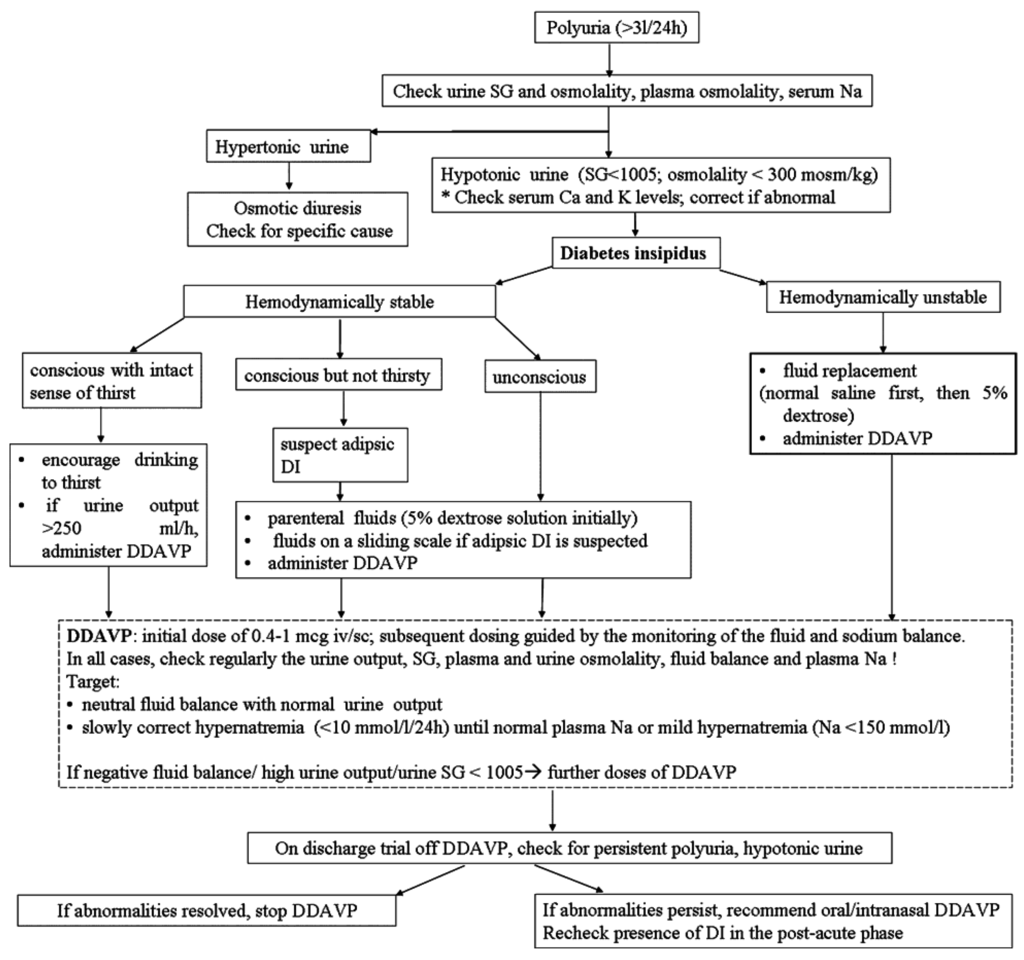 Jcm Free Full Text Diabetes Insipidus After Traumatic
Jcm Free Full Text Diabetes Insipidus After Traumatic
 Diabetes Insipidus An Overview Sciencedirect Topics
Diabetes Insipidus An Overview Sciencedirect Topics
 Nephrogenic Diabetes Insipidus And Carbonic Anhydrase
Nephrogenic Diabetes Insipidus And Carbonic Anhydrase
 Diabetes Insipidus And Siadh Sciencedirect
Diabetes Insipidus And Siadh Sciencedirect
 Clinical Studies Reporting On Diabetes Insipidus In Brain
Clinical Studies Reporting On Diabetes Insipidus In Brain
